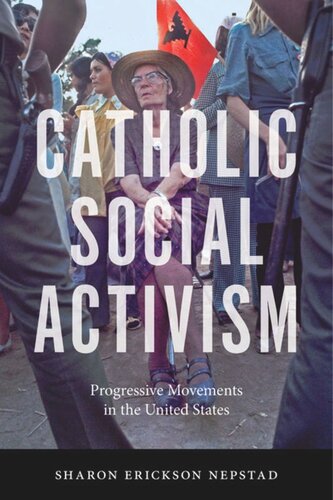

Most ebook files are in PDF format, so you can easily read them using various software such as Foxit Reader or directly on the Google Chrome browser.
Some ebook files are released by publishers in other formats such as .awz, .mobi, .epub, .fb2, etc. You may need to install specific software to read these formats on mobile/PC, such as Calibre.
Please read the tutorial at this link: https://ebookbell.com/faq
We offer FREE conversion to the popular formats you request; however, this may take some time. Therefore, right after payment, please email us, and we will try to provide the service as quickly as possible.
For some exceptional file formats or broken links (if any), please refrain from opening any disputes. Instead, email us first, and we will try to assist within a maximum of 6 hours.
EbookBell Team

4.4
42 reviewsA history of Catholic social thought
Many Americans assume that the Catholic Church is inherently conservative, based on its stances on abortion, contraception, and divorce. Yet there is a longstanding tradition of progressive Catholic movements in the United States that have addressed a variety of issues from labor, war, immigration, and environmental protection, to human rights, women’s rights, exploitive development practices, and bellicose foreign policies. These Catholic social movements have helped to shift the Church from an institution that had historically supported incumbent governments and political elites to a Church that has increasingly sided with the vulnerable and oppressed.
This book provides a concise history of progressively oriented Catholic Social Thought, which conveys the Catholic Church’s position on a variety of social justice concerns. Sharon Erickson Nepstad introduces key papal encyclicals and other church documents, showing how lay Catholics in the United States have put these ideas into practice through a creative and sometimes provocative political engagement. Nepstad also explores how these progressive movements have pressured the religious hierarchy to respond to pressing social issues, such as women’s ordination, conscription, and the morality of nuclear deterrence policies.
Catholic Social Activism vividly depicts how these progressive movements have helped to shape the religious landscape of the United States, and how they have provoked controversy and debate among Catholics and non-Catholics alike.